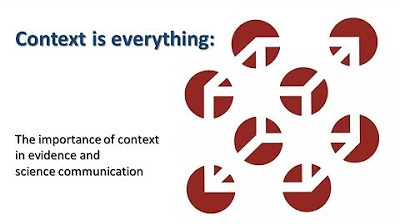The Illusion of Truth
Summary
TLDRThe video explores the concept of cognitive ease, showing how repeated exposure to information makes it feel true and familiar. It highlights experiments demonstrating that frequent repetition can make nonsense words, images, and faces seem positive and familiar. Cognitive ease, which makes processing information feel good and effortless, can be artificially induced and can lead to gullibility. The video underscores the balance between intuitive thinking, which is useful in familiar situations, and critical thinking, essential for discerning fact from fiction, especially in an era where sharing ideas is easier than ever.
Takeaways
- 🔁 Repetition can make statements feel true, even if they're not, due to cognitive ease.
- 🧠 Cognitive ease is a measure of how hard your brain is working and is associated with feeling good and familiarity.
- 🔄 Repeating a stimulus, like a word or phrase, can make it seem more true and positive, as shown in the Michigan university experiment.
- 🎶 Familiarity through repetition also applies to songs and people, influencing our perception of them.
- 📺 High contrast and clear audio create cognitive ease, making content more enjoyable and trustworthy.
- 📚 Legible text is perceived as more true because it's easier to read and requires less cognitive effort.
- 🎓 Even professionals like lawyers and companies with pronounceable names benefit from cognitive ease in their success.
- 🧩 Cognitive ease can make us intuitive and creative, but it can also make us gullible and prone to errors.
- 🤔 Cognitive strain, like illegible text, can force the brain to work harder and lead to more accurate judgments.
- 😐 Being skeptical and analytical, though effortful and sometimes unpleasant, is crucial for distinguishing fact from fiction.
- 🔍 It's important to balance cognitive ease with critical thinking, especially in a world where information is abundant and easily shared.
Q & A
What is the psychological phenomenon where repeated exposure to information makes it seem more true?
-The psychological phenomenon is called cognitive ease, which is a measure of how hard your brain is working. Repeated exposure to information can create cognitive ease, making the information feel more true, familiar, and good.
What is cognitive ease and how does it relate to our perception of truth?
-Cognitive ease is the measure of mental effort required to process information. It is related to our perception of truth because things that are true generally elicit cognitive ease, making them feel familiar and effortless, thus more likely to be perceived as true.
How does the experiment with nonsense words in Michigan universities demonstrate the effect of repetition on perception?
-In the experiment, nonsense words were printed with varying frequencies in school newspapers. People rated the words as more meaningful and positive the more frequently they appeared, showing that repetition can create a sense of familiarity and positivity, even with meaningless stimuli.
Why do familiar faces like the Kardashians elicit cognitive ease?
-Familiar faces like the Kardashians elicit cognitive ease because we have been repeatedly exposed to their images and names. This repeated exposure makes them feel familiar, comfortable, and processed with ease, which also feels good.
How does cognitive ease play a role in the advertising industry?
-Cognitive ease plays a significant role in advertising because the repeated exposure to ads and slogans can make products feel familiar and appealing, even if they are not inherently interesting or valuable.
What is the evolutionary reason behind our brains associating cognitive ease with safety?
-Our brains have evolved to identify threats, and anything novel is a potential threat. If repeated exposure to something does not result in harm, it becomes familiar and comfortable, signaling safety rather than danger.
How do high-contrast images and clear audio create cognitive ease?
-High-contrast images and clear audio are easier for the brain to process, requiring less mental effort. This ease of processing makes them feel good and is associated with cognitive ease.
Why do people with easily pronounced names have an advantage in law firms?
-People with easily pronounced names benefit from cognitive ease, as their names are easier to remember and process. This can lead to preferential treatment and advancement in professional settings like law firms.
How does cognitive ease affect our decision-making in multiple-choice tests?
-Cognitive ease can make us more intuitive and likely to 'go with our gut' when taking multiple-choice tests. This can be beneficial when the correct answer feels familiar, but it can also lead to errors if the intuitive choice is incorrect.
What is the paradox of cognitive ease in learning and critical thinking?
-The paradox is that while cognitive ease makes us feel good, creative, and intuitive, it can also make us gullible and prone to accepting information as true without critical analysis. Conversely, being skeptical and analytical is effortful and can feel uncomfortable, but it is essential for distinguishing fact from fiction.
How can cognitive strain, such as illegible text, improve the accuracy of our responses?
-Cognitive strain forces the brain to work harder, which can help avoid the pitfalls of relying on intuition and cognitive ease. This increased mental effort can lead to more accurate and thoughtful responses.
Outlines

هذا القسم متوفر فقط للمشتركين. يرجى الترقية للوصول إلى هذه الميزة.
قم بالترقية الآنMindmap

هذا القسم متوفر فقط للمشتركين. يرجى الترقية للوصول إلى هذه الميزة.
قم بالترقية الآنKeywords

هذا القسم متوفر فقط للمشتركين. يرجى الترقية للوصول إلى هذه الميزة.
قم بالترقية الآنHighlights

هذا القسم متوفر فقط للمشتركين. يرجى الترقية للوصول إلى هذه الميزة.
قم بالترقية الآنTranscripts

هذا القسم متوفر فقط للمشتركين. يرجى الترقية للوصول إلى هذه الميزة.
قم بالترقية الآنتصفح المزيد من مقاطع الفيديو ذات الصلة

What Happens in the Brain During Addiction

The benefits of flexible thinking | BBC Ideas

Context is everything: The importance of context in evidence and science communication

Why Brainwashing Yourself Keeps You Stuck in Life

The four-letter code to selling anything | Derek Thompson | TEDxBinghamtonUniversity

MENGHITUNG NILAI PELUANG | MATEMATIKA | KELAS 8 #BelajarBarengMrJS
5.0 / 5 (0 votes)
